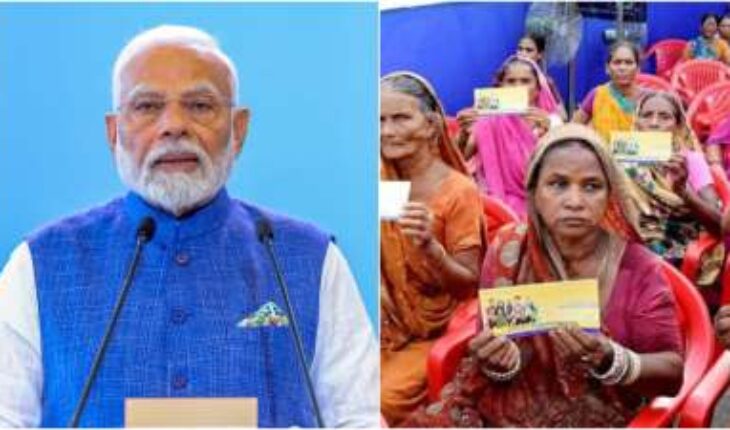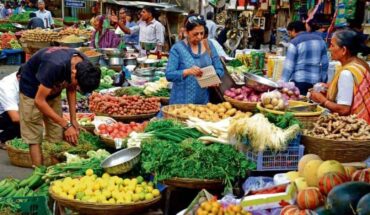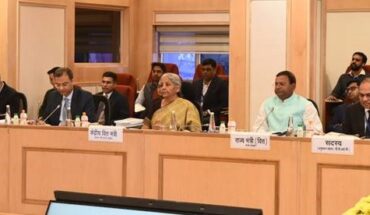The Pradhan Mantri Jan Dhan Yojana (PMJDY), launched on 28 August 2014, completed 10 years on 28 August 2024. During its 10-year journey, this scheme has achieved many achievements. It has been successful in realizing the concept of financial inclusion, increasing women empowerment, taking the process of digitalization to every village and every house, reducing the role of middlemen and usurers in rural areas, reducing incidents of theft, plummeting corruption, bringing social change, increasing pace of deposits and expenditure in the rural areas etc.
In the current financial year, till August 16, 3 crore new accounts have been opened under this scheme. The number of Jan Dhan accounts was 14.72 crore in March 2015, which increased to 53.13 crore on 16 August 2024, which shows an increase of almost 4 times in the number of accounts opened. 66.6 percent of the accounts opened are in rural and urban areas. Most importantly, 53.13 crore accounts are active and have a balance of Rs 2.3 lakh crore, whereas only 14.7 crore accounts could be opened till March 2015 and Rs.15,670 crore was deposited in them. The average balance in Jan Dhan accounts in August 2024 was Rs 4,352, which was Rs.1,065 in March 2015. It is noteworthy that only 8.4 percent of Jan Dhan accounts had zero balance till 16 August 2024. Out of 53.13 crore accounts, 29.56 crore accounts belong to women, which is 55.6 in percentage.
Public sector banks have played a positive and important role in opening Jan Dhan accounts. Government banks have opened 78 percent of the Jan Dhan accounts. Having 9.4 crore accounts, Uttar Pradesh has the highest number of Jan Dhan accounts, while Bihar is second in the case with 6.00 crore Jan Dhan accounts.
Jan Dhan accounts, mobile and Aadhar card have played an important role in providing benefits of government schemes to the common people during the Corona pandemic and in distributing Kisan Samman Nidhi among small and marginal farmers through Direct Benefit Transfer (DBT). Due to this, many people from the deprived section were saved from untimely death during the Corona pandemic.
Today, due to Jan Dhan accounts, 99.95 percent of the people living within a radius of 5 kms of the inhabited villages have access to banking facilities. The villagers are taking advantage of the banking facilities provided by bank branches, banking correspondents and Indian Post Payment Bank in some form or the other. People in rural and urban areas are also taking advantage of the phone-based non-financial services started by the State Bank of India without going to the bank branch, so that their valuable time is not wasted.
No fee is charged by the bank for opening a Jan Dhan account, maintaining accounts and not maintaining the minimum balance or even if the account balance is zero and the customers are also being given the facility of overdraft up to Rs 10,000. Banks are also issuing RuPay cards free of cost, with which customers are also being given free accident insurance of up to Rs 2 lakh.
Today, due to the PMJDY, 80 percent of adults have a formal bank account, whereas in 2011 this percentage was just 50. This scheme has increased India’s standing in the context of financial inclusion at the global level and due to this, common people have access to banking facilities at the individual level instead of the family.
To create a proper ecosystem for financial inclusion, it is necessary that along with the participation of the common people, the government should also have an active participation in the matter. In this context, the government and the common people are working dynamically, and work is also being done to promote it at the private level. However, there is still a need to make people financially literate along with Jan Dhan accounts and make them aware of the dangers of online fraud, which needs to be done continuously by both private and government entities, only then these goals can be achieved effectively.
Due to Jan Dhan accounts, today Rupay cards have given the villagers access to the markets of the world. Now Amazon, Flipkart etc. are delivering products made in India and abroad even to the houses of the village. Not only this, Jan Dhan accounts have developed the tendency to save among the people as well as increased the tendency to spend, the main reason for which is the access of the villagers to the online market. These changes are also accelerating economic activities. Jan Dhan accounts are also carriers of social change. Due to these, incidents of theft in rural areas are decreasing and people’s addiction to gambling and drinking alcohol is also diminishing.
In the last decade, Rs.38.49 lakh crore was transferred through DBT and leakage of Rs 3.48 lakh crore could be curbed, which usually used to fall prey to middlemen and corruption before opening Jan Dhan accounts. Jan Dhan accounts have also helped in promoting digitalization, increasing e-commerce business and making India the top country in the world in terms of digital payments through Unified Payment System (UPI). By July 2024, 5570 crore transactions were done through UPI in India.
To bring further improvement on social and economic fronts, along with Jan Dhan accounts, now the government and banks also need to provide micro and small level loan facilities in rural and urban areas at affordable rates, so that rural India can become self-reliant and the share of rural areas in the Gross Domestic Product (GDP) can increase, as well as the concept of inclusive development in the country can also be realized 100 percent.
In the current era of digitalization, it is also important that continuous work should be done towards protecting the urban and rural common people from online fraud and making them literate. Also, the government should plan to link other government schemes with Jan Dhan accounts so that maximum number of deprived sections can avail the benefits of government schemes.
Satish Singh, Ahmedabad based Senior Columnist. Views are Personal.





